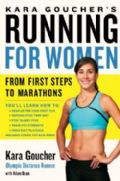Running a marathon can be one of the greatest and most challenging experiences of your life. I can’t say that I always love training for these races, but the feeling of accomplishment I experience when I cross the finish line is like no other. That feeling is what keeps me (and a lot of other marathoners) coming back again and again.
It’s easy to put all of your focus on preparing for the race, training to be able to complete the 26.2 mile distance. But what about after the race is over? It’s important to create a post-marathon recovery plan that gives your body the rest it needs while allowing you to maintain the fitness level you’ve worked so hard to achieve.
There are different schools of thought about the best way to recover in the days and weeks after a marathon. Some experts suggest one day of rest for each mile run, which would mean no strenuous running for at least 26 days. Others think that’s too long, and you really need just a week or two of rest before resuming activity. In my experience, we all recover at different rates. What’s important is to develop a recovery plan that works best for you, based on a few basic principles.
- Just as your marathon taper was probably a little scary, the idea of resting in the days after the race might be a little discomforting for some. But rest is important and essential after such a physical feat. You will not lose your fitness level overnight—or even within a couple of weeks. Rest doesn’t mean you have to sit on the couch all day; in fact, that could make any discomfort and soreness worse. Going for a light walk followed by gentle stretching can ease muscle soreness and make you feel more comfortable. Stay moving with active recovery, but keep it easy and low-intensity.
- Don’t use this recovery time as an excuse to eat lots of junk food. It’s okay to recognize a job well done with your favorite hot fudge sundae if that’s what you choose, but remember that good nutrition enhances recovery. Giving your body the nutrients it needs helps aid in muscle repair and regrowth. You may find your appetite is a little higher in the hours or few days following a marathon, so listen to what your body needs without going overboard.
- When you do decide to ease back into running, start with a short, easy run that’s no more than a few miles long. Pushing yourself too hard can end up delaying the recovery process even further.
- Incorporating more cross-training into your routine, especially over the first few weeks, is a good way to give your running muscles a rest while still keeping your fitness level up.
- Listen to your body. What works for one person might not work for another. While your friend might be able to get back to running within a week or two, you may need two or three weeks—and that’s okay. We all recover differently depending on our bodies and fitness levels.
<pagebreak>
In the days after your race:
- Give yourself at least a few days of complete rest. Some experts recommend even longer, but I find that doing a very short run (two miles) two to three days after the race helps relieve muscle soreness.
- Make sure you are eating well and getting plenty of sleep. Don’t be surprised if you need a few extra hours of shut-eye at night, or feel the need for a midday nap. Think about everything you just put your body through. It deserves a little extra rest!
- If the short run felt good, try a cross-training session of walking, swimming, biking or another low-impact activity a few days later. Some people prefer to try the cross-training session first. Then, if all goes well, they will test out a short run later that week. Whichever way works best for you is fine.
In the weeks after your race:
- Continue alternating shorter running sessions with cross-training activities. Now is the time to really listen to your body and decide if you’re starting to feel good again, or if you need to ease up a little and give your body more rest.
- Many marathoners start to increase mileage again about three weeks after the race is over. That doesn’t mean going out for a 15-mile run right away. It's more reasonable to work back up to 6-8 miles (instead of the easy two to four miles you had been doing) as you feel ready.
In the months after your race:
- Don’t be surprised if you feel a little down after the race is over. This might happen right away, or after you’ve recovered and you start to think, "Now what?" One of the best ways to avoid this feeling is to set another fitness goal. That could mean another marathon, a running/walking race of a different distance, or a completely different activity. Have you considered trying a new sport, but didn’t have the time until now? Maybe this is your chance to branch out and do something different!
- If you decide to continue running but don’t have a specific goal in mind, don’t feel pressure to keep doing a lot of long distance training. After my first few marathons, I desperately wanted to keep my endurance up by doing 10- or 15-mile runs on the weekends. I quickly discovered that this was hard on my body week after week, and I was better off scaling back the mileage, giving my body a break. This way I was rested when I decided to jump back into training.
When to Train for Your Next Marathon
Hopefully, you’ve had such a good race experience that you’re ready to sign up for another marathon! The next common question is: "How long should I wait?" Some seasoned marathon runners can do another race as soon as six weeks later, but for the average person, that’s not recommended. Marathon training (and the race itself) is very hard on your body, so a good goal is to aim for two marathons per year. Some people can handle more without running into problems, and others may have to train even less frequently than this general rule. As long as you’re staying injury-free, feeling good and enjoying yourself, that’s what matters most.
Congratulations for your amazing accomplishment! If you take good care of your body after the race is over, you’ll be ready for your next fitness challenge in no time!
|








